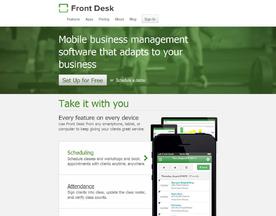What are business networking events ? Business networking events are gatherings where professionals connect, share ideas, and explore opportunities for collaboration and growth.
Business networking events are an essential part of building and nurturing professional relationships. These events provide opportunities for individuals to connect with like-minded professionals, exchange ideas, and explore potential collaborations. Attending business networking events can be a valuable experience for anyone looking to expand their professional network, whether they are entrepreneurs, small business owners, or executives.

Understanding the importance of business networking events is crucial for anyone looking to succeed in their career. Business networking events provide an opportunity to meet new people, build relationships, and learn about new opportunities. It is essential to prepare for these events to ensure that you make the most out of your time. This includes researching the event, setting goals, and practicing your elevator pitch.
Key Takeaways
- Business networking events are essential for building and nurturing professional relationships.
- Preparing for business networking events is crucial to maximize the experience.
- Attending business networking events can provide valuable opportunities for career growth and development.
Understanding Business Networking Events
Business networking events is a crucial aspect of business development and career advancement. It involves building relationships with other professionals and entrepreneurs to create opportunities for growth and success. Business networking events provide a valuable platform for individuals to meet and interact with like-minded individuals, exchange ideas, and establish contacts that can be beneficial in the long run.
The Importance of Networking for Professionals
Networking is an essential part of any professional’s career. It provides an opportunity to meet new people, learn about new opportunities, and expand one’s knowledge and expertise. By attending business networking events, professionals can establish valuable connections with potential partners, business owners, and other industry experts.
Networking also helps professionals to develop their personal brand and reputation. By establishing themselves as knowledgeable and valuable members of their industry, they can attract new clients and opportunities.
Types of Business Networking Events
There are various types of business networking events that professionals can attend. These include conferences, trade shows, business breakfasts, and social events. Each of these events provides a unique opportunity to meet new people, learn about new trends and developments in the industry, and establish valuable contacts.
Conferences and trade shows are excellent opportunities to meet industry experts and learn about new products and services. Business breakfasts and social events provide a more relaxed atmosphere where professionals can network and establish personal connections.
The Role of Networking in Career Advancement
Networking plays a vital role in career advancement. By establishing valuable contacts and building relationships with other professionals, individuals can gain access to new opportunities, including job openings, partnerships, and business ventures.
Networking also provides individuals with the opportunity to learn from other professionals and gain new knowledge and insights into their industry. By attending business networking events, individuals can establish themselves as valuable members of their industry and position themselves for future success.
In conclusion, business networking events provide valuable opportunities for professionals to establish contacts, learn about new trends and developments, and position themselves for future success. By attending these events, individuals can expand their knowledge and expertise, build their personal brand, and establish valuable relationships with other industry experts. For more information on business networking events, visit Entrepreneur’s Guide to Business Networking Events.
Preparing for Business Networking Events
Attending business networking events can be a great way to meet new people, make connections, and grow your business. However, preparation is key to making the most out of these events. Here are some tips to help you prepare:
Setting Your Networking Goals
Before attending business networking events, it’s important to set clear goals for what you hope to achieve. This could include meeting potential clients, learning about industry trends, or simply making new connections. By setting goals, you can focus your efforts and make the most out of your time at the event.
Researching Events and Attendees
Researching the event and attendees beforehand can help you better prepare and make more meaningful connections. Look for information on the event’s website or social media pages, and research the attendees on platforms like LinkedIn or Facebook. This can help you identify potential connections and conversation starters.
Crafting an Elevator Pitch
Crafting a clear and concise elevator pitch can help you make a great first impression and stand out from the crowd. An elevator pitch should be a brief summary of who you are, what you do, and what you’re looking for. Practice your pitch beforehand, and be prepared to adjust it based on who you’re speaking with.
Remember, preparation is key to making the most out of business networking events. By setting clear goals, researching the event and attendees, and crafting a great elevator pitch, you can make meaningful connections and grow your business.
For more tips on preparing for business networking events, check out this article from Entrepreneur.
Maximizing Your Business Networking Events Experience
Attending business networking events can be a valuable opportunity to meet new people, build relationships, and expand your knowledge. To make the most out of your networking experience, it is important to come prepared with effective conversation starters, create lasting impressions, and follow-up with your new connections.
Effective Conversation Starters
Starting a conversation with a stranger can be daunting, but it is essential to make a good first impression. One effective way to start a conversation is by asking open-ended questions that allow the other person to talk about themselves. It’s also important to listen actively and show genuine interest in what they have to say.
Another way to break the ice is by finding common ground. Look for shared interests or experiences that you can both relate to. This can help establish a connection and make the conversation flow more naturally.
Creating Lasting Impressions
To create a lasting impression, it’s important to be memorable. One way to do this is by being authentic and genuine. People are more likely to remember someone who is true to themselves and their values.
Another way to stand out is by being helpful. If you can provide value to someone, whether it’s through sharing knowledge or resources, they are more likely to remember you and want to continue the conversation.
Follow-Up Strategies
After the event, it’s important to follow-up with your new connections to maintain the relationship. One effective way to do this is by sending a personalized email or message. This can help keep the conversation going and show that you value the connection.
Social media can also be a useful tool for following up with your new connections. Connect with them on LinkedIn or other relevant platforms to stay in touch and continue building the relationship.
Finally, make use of event resources, such as Eventbrite, to stay up-to-date with upcoming events and connect with other attendees.
By coming prepared with effective conversation starters, creating lasting impressions, and following up with your new connections, you can maximize your business networking events experience and build valuable relationships for your business.
External resource: 10 Tips for Successful Business Networking Events
Leveraging Online Networking Platforms

As networking has shifted towards the online space, it has become increasingly important for professionals to leverage online networking platforms. These platforms offer a variety of benefits, including the ability to connect with individuals from all over the world, access to a wider range of industry events, and the ability to stay connected with contacts even when working remotely.
Virtual Business Networking Events
Virtual business networking events have become increasingly popular in recent years, and for good reason. These events offer the opportunity to connect with like-minded professionals from all over the world, without the need for travel. Many virtual business networking events are free or low-cost, making them an accessible option for professionals at all levels.
Utilizing Social Media for Networking
Social media platforms such as Facebook and LinkedIn offer a wealth of networking opportunities for professionals. By creating a strong profile and engaging with others in their industry, professionals can connect with potential clients, partners, and colleagues. It is important to remember that social media should be used strategically, with a focus on building genuine relationships rather than simply collecting connections.
Online Networking Best Practices
When using online networking platforms, it is important to follow best practices to ensure success. This includes creating a strong profile, engaging with others in a professional and respectful manner, and being strategic in the connections made. It is also important to stay up-to-date on industry events and news, and to attend virtual networking events when possible.
One external resource that can be helpful for those looking to leverage online networking platforms is Entrepreneur’s article on virtual networking, which offers tips and advice for professionals looking to make the most of online networking opportunities.
Networking Event Formats and Activities

Networking events come in various formats and offer a range of activities to engage attendees. These events provide ample opportunities to meet new people, exchange ideas, and build relationships that can benefit businesses in the long run. Here are some common networking event formats and activities:
Conferences and Seminars
Conferences and seminars are typically organized around a specific industry or topic. They offer attendees the chance to hear from industry experts and learn about the latest trends, developments, and best practices. These events often include keynote speeches, panel discussions, and breakout sessions. Attendees can network with other professionals in their field and explore potential partnerships.
One example of a popular conference is the National Small Business Association’s annual conference. This event brings together small business owners, policymakers, and industry experts to discuss issues facing small businesses and share insights on how to succeed in a competitive market.
Workshops and Roundtable Discussions
Workshops and roundtable discussions are smaller, more intimate events that allow attendees to dive deeper into specific topics. These events typically involve hands-on activities and interactive discussions, giving attendees the chance to learn from each other and build connections. Workshops and roundtables are often organized around a specific theme or challenge, such as marketing or leadership.
One example of a popular workshop is the “How to Build a Successful Business” workshop offered by SCORE, a nonprofit organization that provides mentorship and education to small business owners. This workshop covers topics such as business planning, marketing, and financial management.
Trade Shows and Exhibitions
Trade shows and exhibitions are large-scale events that bring together vendors, suppliers, and buyers from a specific industry. These events offer attendees the chance to explore new products and services, connect with potential partners, and learn about industry trends. Exhibitors can showcase their products and services and engage with potential customers.
One example of a popular trade show is the International CES, a consumer electronics show that attracts thousands of attendees and exhibitors from around the world. This event features the latest in consumer electronics, including smartphones, televisions, and home automation systems.
Networking events can take many forms, and each offers its own unique benefits. Whether attending a conference, workshop, or trade show, attendees can build relationships, learn from industry experts, and explore new opportunities. To learn more about networking events, check out this guide to networking events by Business News Daily.
Building and Nurturing Professional Relationships

Building and nurturing professional relationships is essential for any business owner or entrepreneur looking to expand their network and grow their business. Networking events provide an excellent opportunity to meet potential partners, clients, and mentors. However, it’s not enough to simply attend these events; one must also know how to follow up and maintain these relationships.
The Art of Networking Follow-Up
Following up is crucial to building and maintaining professional relationships. After attending a networking event, it’s essential to reach out to the people you met and continue the conversation. This can be done through email, phone calls, or social media. It’s important to personalize the message and remind them of how you met and what you talked about. Following up not only helps to solidify the relationship but also shows that you’re serious about building a connection.
Mentorship and Peer Support
Mentorship and peer support are critical to the success of any business owner or entrepreneur. Finding a mentor who has experience in your industry can provide invaluable guidance and support. Networking events are an excellent place to meet potential mentors and peers who can offer advice and help you navigate the challenges of running a business. It’s important to nurture these relationships by staying in touch and seeking their guidance when needed.
Creating Opportunities for Collaboration
Networking events also provide an opportunity to create collaborations with other businesses and entrepreneurs. By working together, businesses can leverage each other’s strengths and create new opportunities for growth. It’s essential to identify potential collaborators and reach out to them to explore the possibility of working together. This can be done through joint ventures, partnerships, or referral programs.
In conclusion, building and nurturing professional relationships is a critical component of any successful business. Networking events provide an excellent opportunity to meet potential partners, clients, and mentors. By following up, seeking mentorship and peer support, and creating opportunities for collaboration, business owners and entrepreneurs can expand their network and grow their business. For more information on building professional relationships, check out this article by Forbes.
Measuring Networking Success

Business Networking events can be a great opportunity for professionals to grow their business and professional network. However, it can be difficult to determine the success of a networking event. This section will cover some ways to measure the success of networking events.
Setting and Reviewing Networking Objectives
Before attending a networking event, it is important to set objectives. This can include goals such as meeting a certain number of people, connecting with a specific industry, or finding new job opportunities. By setting objectives, professionals can measure the success of the event by how well they achieved their goals. It is also important to review objectives after the event to determine if they were met.
Gathering and Acting on Feedback
Feedback is an important aspect of measuring the success of networking events. Professionals should ask for feedback from those they connected with at the event. This can include feedback on their pitch, presentation, or overall networking skills. Gathering feedback can help professionals identify areas for improvement and make adjustments for future events.
The ROI of Networking Events
Return on investment (ROI) is a common way to measure the success of business activities. When it comes to networking events, ROI can be measured by the opportunities gained from the event. This can include new business growth, professional growth, or even new job opportunities. It is important to track these opportunities and determine if they are worth the investment of time and energy into attending networking events.
Overall, measuring the success of networking events can be difficult, but by setting objectives, gathering feedback, and tracking ROI, professionals can determine the success of their networking efforts. For more information on measuring networking success, visit this resource with high authority on the topic.
Local Networking Opportunities

When it comes to business networking events, attending events in your local area can be incredibly beneficial. There are many opportunities available for professionals to connect with others and build relationships. Here are a few ways to find and take advantage of local networking events.
Identifying Events in Your Area
One of the easiest ways to find networking events in your area is to search online. Websites like Meetup and Eventbrite offer a wide range of networking events, from industry-specific gatherings to general business mixers. Another way to find events is to join local Facebook groups related to your industry or profession. These groups often post about upcoming events and provide a platform for networking with other members.
Networking in Bars and Restaurants
Another option for local networking is to attend events at bars and restaurants. Many establishments host networking events, such as happy hours or after-work mixers, that provide a casual setting for professionals to connect. This can be a great way to meet new people and build relationships outside of a formal business setting.
City-Specific Networking Groups
Many cities have their own networking groups that cater to professionals in the area. For example, the Philadelphia Chamber of Commerce offers a variety of networking events throughout the year, including breakfast meetings and industry-specific gatherings. In Boston, the Boston Young Professionals Association hosts events for young professionals in the city. Atlanta has a number of networking groups, including the Atlanta Business League and the Atlanta Association of Legal Administrators.
By taking advantage of these local networking opportunities, professionals can expand their network and build relationships that can lead to new business opportunities. To find upcoming events in your area, be sure to check online resources and join local networking groups. One great resource for finding events is Eventbrite, which offers a wide range of networking events in cities across the country.
Networking for Specific Goals

Networking events are an excellent opportunity to meet new people, build relationships, and expand one’s professional network. However, attending these events with specific goals in mind can make them even more beneficial. In this section, we will explore how small businesses, business owners, investors, new job seekers, potential clients, and entrepreneurs can leverage networking events to achieve their specific goals.
Finding New Job Opportunities
Attending networking events can be an effective way for job seekers to meet potential employers and learn about new job opportunities. These events provide an opportunity to network with people in the same industry and build relationships with those who may be able to offer employment opportunities in the future. Job seekers can also use these events to learn about the current job market and industry trends.
Seeking Investors and Partners
Entrepreneurs and business owners can use networking events to find potential investors and partners. These events provide an opportunity to showcase their business and pitch their ideas to potential investors. Entrepreneurs can also use these events to connect with other business owners who may be interested in collaborating or forming partnerships.
Expanding Clientele for Business Owners
Networking events can be an effective way for business owners to expand their client base. By attending these events, business owners can meet potential clients and build relationships with them. They can also use these events to learn about their competitors and industry trends. Business owners can use the information they gather at these events to improve their products or services and better meet the needs of their customers.
When attending networking events, it is essential to have a clear goal in mind and be prepared to engage with others. Bringing business cards, preparing an elevator pitch, and dressing appropriately are all important factors to consider. By attending these events with specific goals in mind, small businesses, business owners, investors, new job seekers, potential clients, and entrepreneurs can make the most of their time and build valuable relationships.
For more information on networking events, check out Entrepreneur’s Guide to Business Networking Events.
Advanced Networking Strategies

Networking is an essential aspect of any business, and it requires a lot of effort and planning to make it successful. In this section, we will discuss some advanced networking strategies that can help you take your networking skills to the next level.
Hosting Your Own Networking Events
Hosting your own networking events can be an excellent way to build your personal brand and establish yourself as a thought leader in your industry. By organizing your own events, you can control the guest list, the agenda, and the overall atmosphere of the event.
To make your networking events successful, you need to have a clear understanding of your target audience and their needs. You can also use innovative marketing strategies to promote your event and attract the right people. For example, you can create a landing page for your event, use social media to promote it, and leverage email marketing to reach out to potential attendees.
Becoming a Thought Leader
Becoming a thought leader in your industry can help you establish yourself as an authority and build your personal brand. To become a thought leader, you need to have a deep understanding of your industry and the challenges that your target audience faces.
You can share your knowledge and expertise by speaking at business conferences, delivering keynote presentations, and writing articles and blog posts. By doing so, you can position yourself as a go-to resource for information and insights in your industry.
Innovative Marketing through Networking
Networking can also be an effective way to promote your business and reach new customers. By attending trade shows and other networking events, you can meet potential customers and partners and build relationships with them.
To make the most of your networking opportunities, you need to have a clear understanding of your target audience and their needs. You can also use innovative marketing strategies to stand out from the crowd. For example, you can use interactive displays and exhibits to showcase your products or services, or use social media to connect with attendees and promote your brand.
In conclusion, advanced networking strategies can help you take your networking skills to the next level. By hosting your own events, becoming a thought leader, and using innovative marketing strategies, you can build your personal brand, establish yourself as an authority in your industry, and reach new customers. For more information on networking strategies, you can refer to this resource.
Emerging Trends in Networking

The Impact of AI on Networking
Artificial Intelligence (AI) is revolutionizing the way people network. AI-powered tools can help identify potential business partners and provide personalized recommendations based on an individual’s networking history. AI can also help automate routine tasks such as scheduling meetings and following up with contacts. This frees up time for professionals to focus on building relationships and expanding their network.
According to a Forbes article, AI can also help professionals make better decisions by providing insights into the behavior of their network. This can help identify patterns and trends that may not be immediately apparent, allowing professionals to make informed decisions about their networking strategy.
Networking in a Post-Pandemic World
The COVID-19 pandemic has forced professionals to adapt to new ways of networking. With many events and conferences moving online, virtual networking has become the norm. This has opened up new opportunities for professionals to connect with people from all over the world.
As Harvard Business Review points out, virtual networking has its own set of challenges. Professionals need to be more intentional about building relationships and finding ways to stand out in a crowded digital space. However, virtual networking also allows for more flexibility and can be more cost-effective than traditional in-person events.
Sustainability and Networking
Sustainability is becoming an increasingly important consideration for businesses and professionals. As Entrepreneur notes, sustainability-focused networking events are on the rise. These events provide a platform for professionals to connect with like-minded individuals who share a commitment to sustainability.
Sustainability-focused networking events can also provide opportunities for professionals to learn about new trends and technologies in the field. This can help businesses stay ahead of the curve and make informed decisions about their sustainability strategy.
Overall, emerging trends in networking are shaping the way professionals connect and build relationships. Whether it’s AI-powered tools, virtual networking, or sustainability-focused events, professionals need to stay informed and adapt to these trends to stay competitive in today’s business world.
Frequently Asked Questions

How can one prepare for successful business networking events?
To prepare for successful business networking events, it is important to set clear goals and objectives. This includes identifying the type of people you want to meet, the kind of connections you want to make, and the information you want to gather. It is also important to research the event beforehand, so you can plan your time, dress appropriately, and bring any necessary materials such as business cards or promotional materials.
What are the best strategies for following up after a networking event?
Following up after a networking event is crucial to building and maintaining professional relationships. One effective strategy is to send a personalized email or message to each person you met, thanking them for their time and referencing something specific you discussed. It is also important to connect with them on LinkedIn or other social media platforms, and to schedule a follow-up meeting or call if appropriate.
What are the key benefits of attending business networking events?
Attending business networking events can provide numerous benefits, including the opportunity to expand your professional network, learn about new industry trends and developments, and gain exposure for your business or brand. Networking events can also provide a platform to develop new skills, share knowledge and ideas, and build relationships with potential clients, partners, and mentors.
How often should one attend networking events to grow their professional network?
The frequency of attendance at networking events can vary depending on individual goals and circumstances. However, it is generally recommended to attend at least one networking event per month to maintain and grow your professional network. It is also important to attend a variety of events, including industry-specific events, general business networking events, and events hosted by professional organizations.
What are some common mistakes to avoid at business networking events?
Common mistakes to avoid at business networking events include being too pushy or sales-focused, failing to listen actively and engage with others, and failing to follow up after the event. It is also important to avoid monopolizing conversations, being disrespectful or rude, or failing to dress appropriately for the occasion.
How can one measure the success of their participation in business networking events?
Measuring the success of participation in business networking events can be challenging, as it depends on individual goals and objectives. However, some key metrics to consider include the number of new connections made, the quality of those connections, and any new business or opportunities generated as a result of attending the event. It is also important to evaluate the event itself, including the quality of the speakers, the organization of the event, and the overall value provided to attendees.
One resource that can provide additional insights and tips on business networking events is Entrepreneur.com.















